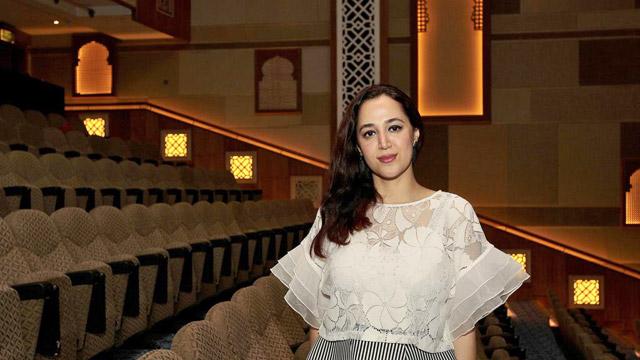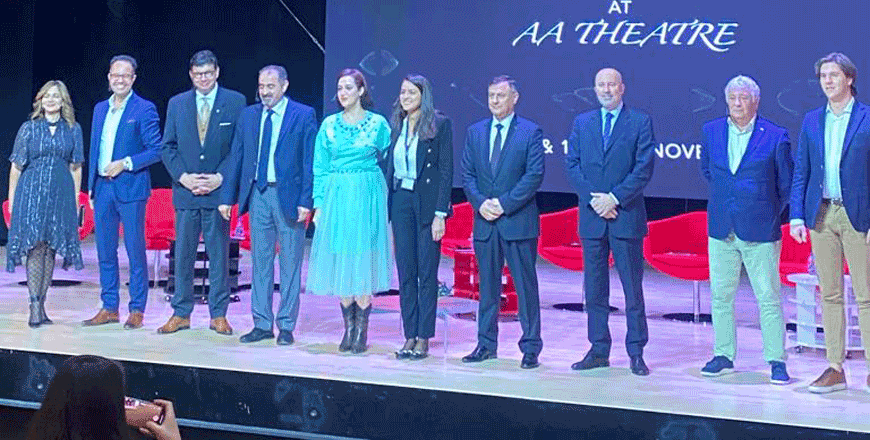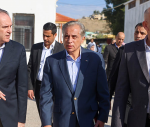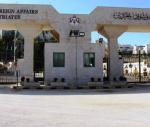You are here
Art of opera sees revival across region — scholar
By Johanna Montanari - Nov 23,2019 - Last updated at Nov 23,2019
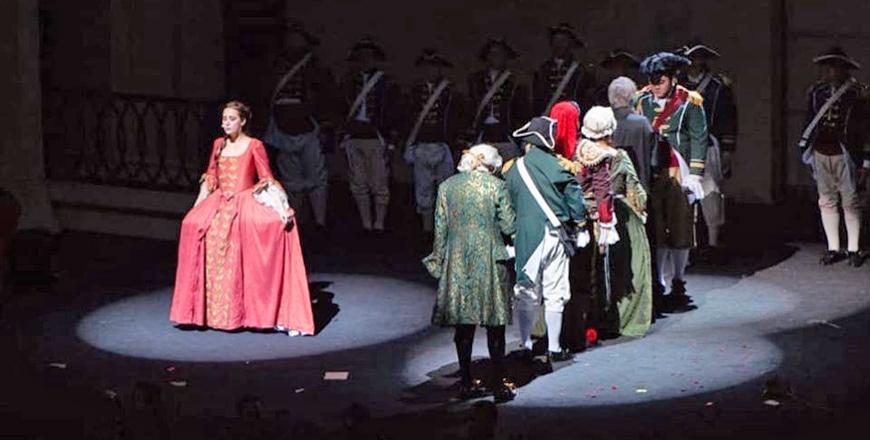
Singers perform the opera ‘The Barber of Seville’ by Italian composer Gioachino Rossini on October 19 in Amman during the Italian Language Week (Photo courtesy of Amman Opera Festival)
AMMAN — A renaissance of opera theatre has appeared in the Middle East and North Africa (MENA) region recently, said an Italian scholar and author.
“The scenario is different from one country to another, of course, but in general there is a significant development of the cultural industries, despite all the difficulties and the challenges,” Paolo Petrocelli, a senior performing arts manager, musicologist and violinist working in the classical music and opera field, said in an interview with The Jordan Times on Tuesday.
Petrocelli recently published the first research work on opera theatres across the MENA region with Cambridge Scholars Publishing, titled “The Evolution of Opera Theatre in the Middle East and North Africa”.
“I have always been fascinated about the collaboration between European and Middle Eastern cultural organisations and artists,” Petrocelli said, adding: “I am based in Italy and we have a very important heritage and tradition in opera. So I discovered as a cultural manager that I am able to play a part in the process of dialogue and cultural exchange.”
When asked about his reasons for writing the book, Petrocelli said: “I worked a lot in the Middle East, consulting and collaborating with some of the main opera organisations and music institutions in the region, including the Royal Opera House Muscat in Oman and Opera Lebanon, and also in Jordan with the Amman Opera Festival. I wanted to better understand the challenges, but also the opportunities and the developments of opera in the Middle East."
The history of opera in the Middle East started in the 19th century with the colonial powers, especially the French, but also the British and Italians, who occupied some parts of the region, mostly in North Africa, according to the scholar.
After the first opera house was built in Algiers, Algeria in 1853, opera's popularity soon spread across the region, he said. However, starting around the end of colonialism in the 1930s, and especially after the World War II, opera was seen as something that belonged to the past and that had no place in contemporary Middle Eastern culture, according to the scholar.
“Nowadays, opera is seen as something that every country and every major city should have. We are seeing that the cities of North Africa, especially those that used to have historical theatres, are trying to restore many of them or build new theatres,” the scholar noted.
He added that Jordan is unusual in this area as the Kingdom has no opera house, and instead has the National Centre for Culture and Arts, which is sometimes used to showcase opera performances.
“Organising operas is very costly. In order to sustain such kinds of events you really need to bring together the private sector, the public sector and the community,” Petrocelli noted, adding: “Regarding Jordan, the Amman Opera Festival being the very first Arab opera festival gives a strong message to the country of Jordan but also to the region that you can do something very high-profile starting with limited resources and partners.”
The festival, he said, was founded by young entrepreneur and singer Zeina Barhoum with support of the Royal family.
“Most of the time, we see opera as something very elite, for just a small part of society. I believe this is not true. I believe when we are going to support even more arts and culture and people like Zeina Barhoum in Jordan, we will have more stable societies,” he concluded.
Related Articles
AMMAN — Despite the recent difficulties facing the region, Jordanian soprano Zeina Barhoum initiated a two-day opera festival to send a mess
AMMAN — The fourth edition of Amman Opera Festival (AOF), held under the patronage of HRH Princess Muna Al Hussein, is set to present
AMMAN — Amidst all the challenges people are facing in the region, the universal language of music binds us together regardless of the kind


